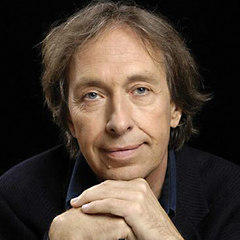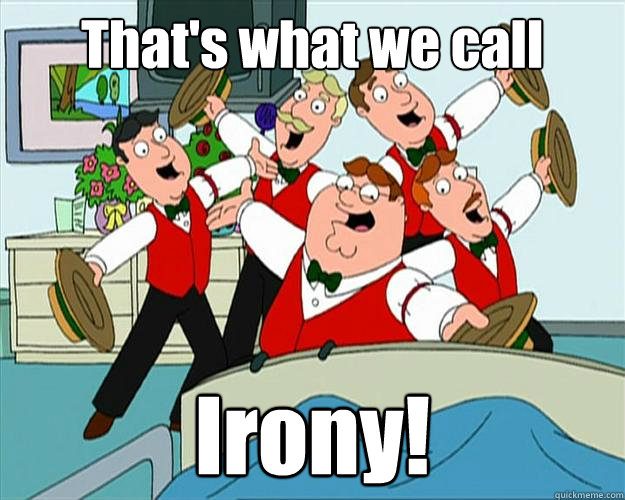-
So who deleted the pomo posts?What you call ad hominems I would call rather hilarious, witty, and accurate descriptions of Hegel's writings.
-
Would you like to live forever? If so, why ?As I am now? No. Something like the Christian afterlife attracts me, though, wherein one's current existence is transformed and elevated to a higher one.
-
Religious experience has rendered atheism null and void to meI now know God exists. — colin
Define God.
These experiences have rendered the arguments of atheists quite laughable, and almost desperate to me. — colin
These people haven't presumably had these experiences of yours, so how are you to blame them?
Many of them would likely start believing in what you call God (whatever that is) if they had the same or similar experiences as you have. So the question becomes how one has those experiences and why God appears to be so choosy in who has them. (Hopefully mental illness is not a prerequisite for them!) -
Can "life" have a "meaning"?Riiiiight... — Sapientia
I can feel the condescension from here.
So, how do you think you know this? And why can it only be described negatively? Do you mean, you can't even say what it is, but can only say what it isn't? — Sapientia
I think my post answers these questions. I don't know what you want me to say.
No they don't. I don't. Many others don't. And how did you reach that conclusion about nonhuman living things? A chimp, a cat, an ant, a tree...? — Sapientia
If this were true, then I wouldn't expect to see you desiring (in the sense of becoming attached to) anything at all. Nor would I see animals doing so.
No, there is nothing to back up the claim that one "must" do that. And there are good reasons not to. — Sapientia
It's a hypothetical imperative (as all imperatives all, contra Kant), which therefore takes the form, if X, then Y. If you don't care about X, that's fine. -
Innate ideas and apriori knowledgeWell, it means I'm an enigma to myself, among other things, I suppose. Your question might benefit from greater specificity.
-
Brexit: Vote AgainThe Guardian, mainly — Bitter Crank
Well there's part of your problem.
Tough nuts I say. That's how democracy works. If you don't like the decision, then you probably don't like democracy. -
Innate ideas and apriori knowledgeYes. Kant's categories, though boiled down to time, space, causality, and being an object for a subject.
-
What should motivate political views?Should we hold political views based on our morals, or based on pragmatics, or a combination, or something else? — darthbarracuda
We should hold them based on the facts, such as human nature.
Of course in an ideal world we wouldn't need a state, but ideal worlds don't exist except in the imagination. The only alternative is what I and Thomas Sowell would term the tragic view of politics: there are no perfect solutions, only trade offs and compromises. The US founders understood this, which is why the American revolution was so different from the French. The former was waged by pessimists and the latter by optimists, to put it perhaps overly simply. The US had built in enough checks on power and self-correcting mechanisms, based on a pessimistic view of human nature and a fear of both mob rule and autocratic tyranny, such that it could resolve its own internal contradictions and abuses, such as slavery. Not so in France, whose revolution ended in horrific bloodshed, the destruction of culture and art, and eventually tyranny. This tracks the two strains in Enlightenment thought as well, which I would once again term pessimistic and optimistic; between Burke and Herder one might say. Too often the Enlightenment is trashed by the postmodern left and the reactionary right as inaugurating a contemptuous and bloodstained optimism and idealism, but these groups are quite ignorant of the tragic strain within this movement. -
Pre-Sectarian BuddhismWell, again, it's what the Vajrayana say about themselves. It's in a general religion textbook I have, too.
Thanks for the link. I'll take a look at it here. -
Pre-Sectarian Buddhismhttps://en.wikipedia.org/wiki/Vajrayana#Third_turning_of_the_wheel
I haven't heard of Yogachara being the third turning, but that's very interesting. Yogachara has many similarities with certain Western idealist philosophies, such as Schopenhauer's. It seems rather diffuse today, though, without specific schools. -
Non-religious perspectives on religionI indicated people like them when I mentioned the religious sophisticate.
Religion is by and large for the common man. Those who are philosophically inclined but who find themselves living in a society in which freedom of speech and religion do not exist often realize the allegorical nature of much of religion and so couch their ideas in the language of religious doctrine. Augustine's The Literal Meaning of Genesis is, despite the title, an allegorical reading of Genesis. But the average man on the street in Hippo, North Africa, where Augustine was bishop, might hold to what today we would call a literal interpretation of the text. This gets closer to what Strauss calls esoteric, or hidden, writing that one can find in many texts during the medieval and early modern periods. When, starting in the Enlightenment, freedom of speech and religion slowly began to be inaugurated throughout much of Western society, esoteric writing all but disappeared, for at that point, philosophers could write more or less freely without fear of persecution from religious or state authorities.
That being said, it is possible to take this idea too far. I am not suggesting that Augustine or Aquinas were closet atheists or secular humanists. One could never know for certain, and I think to suggest that they were, merely on account of their more sophisticated form of religion, is slightly patronizing and unfair. For it is possible to believe all the dogmas that the common man does and yet have or seek a greater understanding of them, as the aforementioned figures did. -
Pre-Sectarian Buddhismbut then was wiped out by the Mughal invaders — Wayfarer
The Mughals came much later, though. Buddhism began disappearing from India before Muslim rule, or perhaps I am misremembering.
Vajrayana is not actually the 'third turning'. — Wayfarer
They say it is. I was simply making a descriptive statement.
I've never joined a particular school or teacher although I feel a stronger affinity with Chinese Buddhism — Wayfarer
Interesting, thanks. I like a lot of Chan/Zen too, but feel more of an affinity toward Theravada, and in particular the Thai forest tradition. -
Non-religious perspectives on religionI want to see if it is possible to reject religion and yet accept it as a legitimate avenue in itself — darthbarracuda
One could easily advance a Straussian or Schopenhauerian interpretation of religion to answer this question. To them, religion serves as the metaphysics of the masses. Not everyone has the ability to become a philosopher, and yet everyone has a need, bordering on the natural, to have a coherent metaphysico-ethical picture of the world. Religion provides this picture, which is prepackaged and ready to be believed in without the need for strenuous argument, and so perfect for the common man. Religion could not survive if it did not contain certain truths, but these truths are clothed in the garments of myth and allegory. The religious plebeian may not realize this, but the religious sophisticate often does. The former doesn't have to realize it, whereas the latter, if he does, is thereby able to maintain his integrity in a society that would not permit him to be openly skeptical. In sum, it would be monumentally absurd to say that religion has been able to exist and endure for millennia without containing the slightest kernel of truth, goodness, or beauty. For one thing, one would have to credit the clergy of every religion, in maintaining what would have to be a rather complicated and nefarious conspiracy, with a level of genius and craft which they quite plainly do not possess. Human beings are enormously credulous, but not so credulous, in general, as to accept belief systems devoid of all truth, goodness, and beauty. -
Can "life" have a "meaning"?The word "meaning" in your question would refer to life having some end or goal toward which it strives. I think life does have such an end, but that it can only be described negatively. Living things strive for permanent satisfaction of their desires, but this cannot be achieved by affirming some highest good (summum bonum), because no such thing exists. Rather, one must renounce the desire for satisfaction itself.
-
Pre-Sectarian BuddhismI believe there are alleged to be 24 different schools of early Buddhism, the only surviving one being Theravada, which preserved the Pali Canon in Sri Lanka. Buddhism in India mysteriously disappeared sometime during the Gupta Empire.
What your sources seem to suggest is that the Buddha, rather than being a historical figure later mythologized in Mahayana, might have originally been a mythological figure later historicized in Theravada. It's an interesting idea, but I want to say that this would be on the fringe of Buddhist scholarship, much like the view that Jesus wasn't a historical person. I happen to like the work of Robert M Price concerning the latter view but am personally unpersuaded as to its validity, just as I am unpersuaded as to the idea that Mahayana is more ancient than Theravada. The role of language is perhaps most important here, since Pali was a vernacular, non-priestly language of northern India (i.e. not Sanskrit, though somewhat related to it), which fits with the notion that Buddhism began in part as a reaction against elite Vedic religion.
Moreover, many of the concepts that became prominent in Mahayana are present in Theravada. Emptiness, the idea and role of a bodhisattva, Buddha nature, etc. It's just that these ideas get tweaked and transformed over time, often as a result of syncretic processes that occurred in the countries to which Buddhism spread outside of India.
I would also add a third school, Vajrayana (in Tibet and Mongolia), which sees itself as the third turning of the wheel of dharma, and so separate in some sense from the first two turnings (Theravada and Mahayana).
Lastly, I'm curious about you Wayfarer. I think you've said before that you identify as a Buddhist. In what sense do you do so? Have you formally taken the three refuges at a temple or monastery? And what form or school of Buddhism do you identify with? There aren't any Buddhist monasteries or meditation centers where I live currently, but even if there were, I would be hesitant to join one, seeing as Buddhism in the West and America seems to attract leftist hipster peaceniks who think Buddhism is just Marxism with oriental imagery. I suppose I would probably want to find something in the Theravada tradition. -
So who deleted the pomo posts?You look rather despondent there. Perhaps you should unfriend that peach colored sweater wearing fellow petting you. He seems patronizing.
-
So who deleted the pomo posts?Anyway, yeah, a lot of French thinkers pose, I agree — csalisbury
Victoire. -
So who deleted the pomo posts?Cioran is not pretending to be anything other than he is, which is a somewhat disheveled, absent-minded, anxiety-ridden, pessimistic aphorism coiner. Derrida and co. have clearly taken pains to make sure they are photographed a certain way so as to enhance their coolness. I mean, c'mon.
-
So who deleted the pomo posts?It's the whole package, man. If you don't see it, you don't see it.
-
So who deleted the pomo posts?He's from another time. The look on his face is utterly unpretentious.
-
So who deleted the pomo posts?Let's see. There's Ortega y Gasset, who here looks perfectly normal, even with his pipe:

Cioran always looks pained and anxious:

Pascal Bruckner is a Frenchman who manages to look normal:

-
So who deleted the pomo posts?I don't know, most all of them except for the postmodernists?
I've always thought this portrait of Kant makes him look like a total nerd:

Of course, there's the other oil painting of him which centers on his forehead that makes him look like a badass. -
So who deleted the pomo posts?I don't know what personal failings people mock him with - perhaps his ugliness or his lack of success in love - but I would regard bringing them into a discussion of his philosophy, unless there was a very clear link between them and the philosophy itself - as delete-worthy behavior. — andrewk
There are a whole host of examples that are continually brought up. The main one I come across is his not living the ascetic life he so exalts in his philosophy.
I feel the same about people interjecting irrelevant comments about Heidegger's Nazi party membership into discussions of his philosophy of being and time, even though I have a dislike for Heidegger the person and do not understand his philosophy. — andrewk
That's another great example of what I mean. I would be in favor of making fun of Heidegger for being a Nazi, but I wouldn't claim his philosophy was bunk (if I, too, could understand it) on account of that fact. Another example I just thought of is Wagner. Lots of people won't listen to his music simply because of his anti-semitism. Well, I think his music stinks, but I don't listen to it for that reason, not because he was an anti-semite, which would be silly. All the same, I wouldn't personally report anyone who said such a thing in a comment.
But if you choose to make a fuss about it, isn't that being rather self-important about your heckles? — andrewk
I don't see why it would be, no.
It sounds like you regard the word 'douche' as somehow insulting or disgusting. — andrewk
Yeah, in the US, but maybe not elsewhere in the world, calling someone a douche or a douche-bag is basically to call them a smug asshole and someone who's trying way too hard to look cool. So I think a lot of postmodern theorists look like smug assholes in their photos, which they do. -
So who deleted the pomo posts?My interlocutor derailed with me, so I don't see the danger in that case. Be that as it may, sure, I'm all for context.
-
So who deleted the pomo posts?a prestigious publication — jamalrob
Well there's your problem! Your standards are stratospheric, jamal, sheesh.
I assumed you would have appreciated my reasons and would not have minded. — jamalrob
To be honest, I don't all that much, and would not have brought it up were it not for the suggestion of another mod. It's water over the dam now. -
So who deleted the pomo posts?but belittles it by mocking personal qualities of the philosopher involved. — andrewk
Dear andrewk, as someone interested primarily in Schopenhauer, I can't tell you how many times I've read, both on the last forum, on this one, and on the Internet at large, comments that seek to discredit his arguments on account of his alleged personal failings. It's one of my perennial frustrations, but these comments are never deleted and nor would I want them deleted.
Unlike said comments, I'm not even trying to advance an ad hominem but am merely poking fun for its own sake. If that's not allowed on a forum, then that forum is far too self-important. -
So who deleted the pomo posts?"French intellectuals look like "douches"" — Bitter Crank
It would be silly of me of me to say that "French intellectuals look like douches, therefore, what they say is nonsense." That would be an ad hominem. No, I merely offer the observation that they appear as such. I mean, look:




How can you look at these and other pictures with a straight face?
I blame Camus for starting this stupid trend, a writer whom I greatly admire and would not count as a postmodernist. (Am I not impartial?) I think this was the douchey look that started it all:

Again, I love Camus, but he looks like a douche here, and his obscurantist postmodern progeny have unfortunately followed suit in the photograph department. :-| -
So who deleted the pomo posts?I'm not sure I like the idea that posts can be deleted due to one person's subjective appraisal of what counts as "low quality." It sounds like you have a totalitarian streak, jamal. On the other hand, it is your forum, so I suppose I ought not complain of this fact to its dictator. I still stand by my comments, but at least you were honest enough to admit of deleting them, and for that you have my appreciation and thanks. We don't converse enough to have had much of a relationship to rupture in the first place, but hopefully we can now continue on good terms.
-
So who deleted the pomo posts?For shame, jamal. Why did it have to be like this?
I just thought it was the typical, insufferable, adolescent American shite we have to either put up with or delete, every single day. — jamalrob

By the way, why did you assume this, since you already know who I am? I posted in the old forum, registering there in 2011 or something like that, and I was already well out of adolescence by then. Perhaps you mean to say that I act like one without being one. In that case, you would appear to have a rather low bar for what counts as such behavior. The main point, however, is that I violated no rules so far as I am aware, so that my posts ought not to have been deleted.
Can I expect any olive branch or are going to remain bitter toward me? -
Social ConservatismI agree so how to educate them better? — Agustino
Well, I wouldn't deign to think I could adequately answer such a question on a mere Internet forum, but for starters, I would say that we ought to invest more in the arts, place less of an emphasis on standardized testing and the use of technology in the classroom, require teachers to hold degrees in their fields (rather than in generic education degrees), and advance measures to alleviate poverty and single-parent households.
What if this isn't possible? — Agustino
Name an example. -
Social ConservatismBut education obviously isn't working, so we have a very real problem. People are more educated than ever today, and many are more immoral than ever. So what does it mean then? — Agustino
That they're educated badly.
The culture must evolve itself — Agustino
I naturally agree, but when it comes to human rights violations, I take a pretty firm stand that they must be stopped and the perpetrators of them punished, no matter if the surrounding culture changes.
my point is that regardless of how you call it - removing barriers or not - the government should be actively involved in shaping the macro-economic environment. — Agustino
Alright, sure, then we agree. But I still think I'm on the right side of the semantics here, for whatever that's worth. -
Dialogue on the Christian ReligionNot, not 'a thing', nor 'a being', but being, the only actual existent or only real being - the sole reality. Every particular existent or being — Wayfarer
Well, then we no longer disagree, it seems to me. I'm satisfied.
So now you've moved from justifying your understanding of being from a German text to a Latin one? I remain similarly unimpressed. — Barry Etheridge
I mentioned the scholastics in the post to which you originally responded. They wrote in Latin, in case you didn't know.
'not a being' but on 'not of this world'. — Barry Etheridge
They amount to the same thing.
but that God is a being 'but not as we know it' to borrow a phrase from Star Trek. — Barry Etheridge
No where does he say this, to my knowledge. A quote, if you please, otherwise I remain skeptical.
I don't understand why you apparently think the only alternative to God being a being is God being a thing. — John
I was saying that this was an implication of Wayfarer's position with respect to these words. I was providing a counter-example. -
Dialogue on the Christian ReligionConsider the following example, chosen for its relevance to the thread. For many classical theists like Aquinas, they stress that God is not, and cannot be, "a being." He's not "one of the beings of this world." Now, when we translate this from the Latin, do you honestly think that Aquinas believes God could be a thing, merely on account of him not being "a being," since the word "being," used as a noun, is only meant to refer to sentient living things? No, he means all things, generically. Trees, rocks, stars, plants, animals, etc. God's not one of them. The phrase "God is not a being" is therefore using the word "being" both as a noun and as a synonym for "thing."
The same can be said of the word "world," as I used above. If you want to be literal about it, it refers simply to the planet Earth. However, as you well know, it can also refer more abstractly and generically to the universe itself or, beyond this, to anything that is, whether in the universe or not. So it seems to me that, far from having committed some spooky "grave error," it is you gentlemen who are being overly pedantic on this point. -
Social ConservatismOkay so in a democracy, what should be done about the electorate? — Agustino
Outside of giving them better education, nothing.
the question is do you have a way to prevent them? And if so, what is that way? What can Putin do today - or really anyone in Russia - to stop such things from happening? — Agustino
The international community has various ways: diplomacy, economic sanctions, military assistance and guarantees of it to threatened states, and as a last resort, direct military intervention.
So is creating special artificial rewards in an economic environment not equivalent to setting up macro-economic conditions that are aimed to achieve a certain positive goal? — Agustino
You described removing barriers for the business to succeed (specifically taxes). That's not a positive reward being bestowed.
Thorongil

Start FollowingSend a Message
- Other sites we like
- Social media
- Terms of Service
- Sign In
- Created with PlushForums
- © 2026 The Philosophy Forum